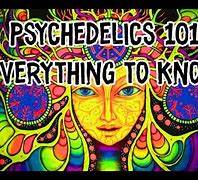psychedelics
Things You Need to Know About Psychedelics
Things You Need to Know About Psychedelics – what are psychedelics
To begin with Things You Need to Know About Psychedelics , such as LSD and mushrooms, are expanding beyond their reputation as experimental social hallucination drugs. Often described as “mind-manifesting” because some believe they make the mind visible, these substances are becoming tools for medicine and therapy. MDMA and psilocybin, in particular, might become FDA approved as trauma treatments soon. In fact, the Biden administration said it “anticipates” that the drugs will be approved by regulators within the next two years. With this development, these mind-altering drugs are buzzier and more relevant than ever, so we’re taking a look at six things you need to know about them.
What exactly are we talking about?
How can these be used as a therapeutic treatment?
Both psilocybin and MDMA have received FDA breakthrough status, which means they’ve been labeled as drugs that could therapeutically treat a serious or life-threatening condition. This label from the FDA indicates that preliminary evidence points to the drug demonstrating a substantial improvement compared to other available therapies. For now, signing up for and participating in one of these trials is the most effective—and only legal—way to use psychedelic drugs in a therapeutic setting.
Psilocybin was specifically given FDA breakthrough status for treatment-resistant depression. There are ongoing trials testing the drug’s efficacy for depression treatment, including a phase III trial that is set to begin soon. The Johns Hopkins Center for Psychedelic and Consciousness Research is invested in this discovery and potential breakthrough, committing $17 million of funding to expand research on psychedelics for illness and wellness.
MDMA, on the other hand, has been given breakthrough status for its potential use in treatment-resistant post-traumatic stress disorder. A phase III trial is currently underway to evaluate whether the drug can be effective in treating treatment-resistant PTSD. It could get approved as early as this year.
What are the risks associated with psychedelics?
These drugs are not medically or federally approved, and psychedelics can have incredibly powerful—and sometimes negative—outcomes, especially in recreational and unsupervised settings. (LSD and psilocybin have been labeled as illegal under United States federal law for more than 50 years, but they have been decriminalized in a few states and cities.)
“The promising findings from clinical trials are under very controlled conditions with trained therapists and cannot be extrapolated to recreational settings,” Hellerstein emphasizes.
Often, bad psychedelic reactions or experiences are connected to using a high dose, which is why it’s important to connect with an expert. “Psychedelics are powerful drugs, and that means they have the potential for great good as well as great harm,”
Who should and shouldn’t consider treatment with psychedelics?
lastly There isn’t a definitive. The people participating in the therapeutic trials underwent extensive screening before beginning the experimental treatment process, and they are being monitored very closely. People who have a personal history or family history of bipolar disorder or psychosis are currently being excluded from the clinical trials for psychedelic drug treatments

